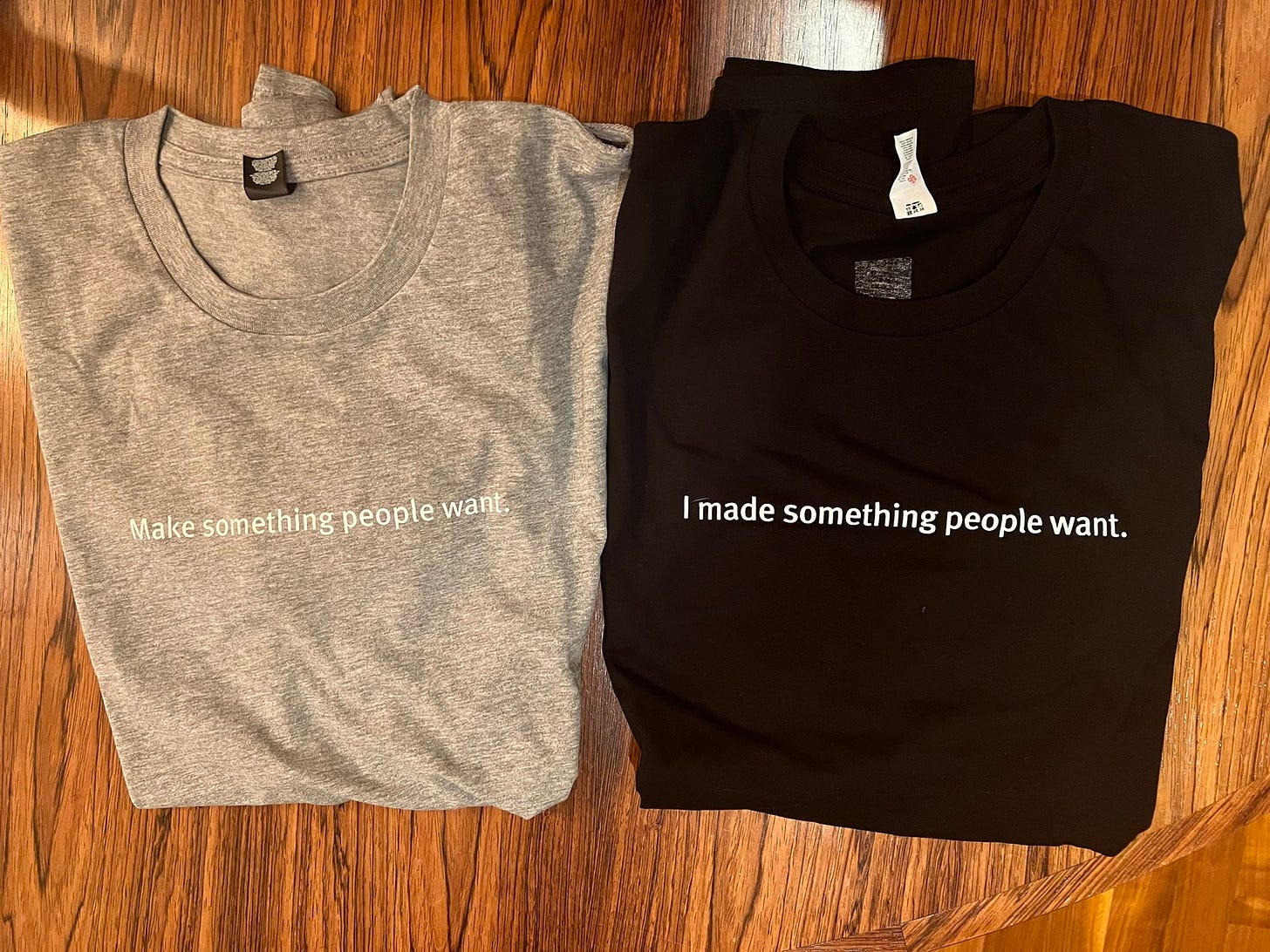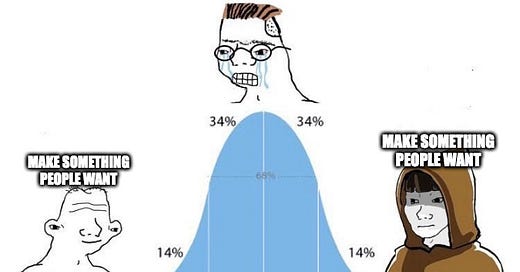
At the earliest stage of your company, figuring out what exactly to build is hard.
Back in 2012, Paul Graham wrote one of his famous essays called “How to Get Startup Ideas”.
I revisited the essay this week as I am currently working through this stage with my cofounder.
Here are my takeaways.
Don’t try to come up with startup ideas.
“It sounds obvious to say you should only work on problems that exist. And yet by far the most common mistake startups make is to solve problems no one has.”
Coming up with plausible sounding but infeasible startup ideas is an easy mistake to make. Uber for cats. Airbnb for prisons. Facebook for Amazonian tribes.
If you sit down and try to come up with business ideas, they are probably not going to be very good. Worse than that, you will possibly come up with a plausible sounding idea that is actually a bad idea.
This is why seeking out problems is so important. Problems that actual people or actual companies have. Because if a business or individual has a problem that is urgent or painful enough, they will pay you if you have a solution. Which brings us to…
Make sure someone needs your product
“When a startup launches, there have to be at least some users who really need what they're making — not just people who could see themselves using it one day, but who want it urgently.”
You need at least some people who really need your product. You can tell they really need it because they are willing to use your crappy first version of the product.
I feel like this one point could be an essay all by itself, because actually doing this is really hard. There is so much to unpack in executing this well, and if you can figure out this step you are nearly guaranteed to have a successful company.
What’s the best way to figure out if someone needs your product? Get it in the hands of users as quickly as possible. Ask someone to use it. Try to sell whatever you have to a company. If nobody wants what you built, you will find out pretty quickly.
The difficult part here is knowing how much to build such that people will use it. Like are they not using it because your v1 is crap or because they don’t really need the thing you are trying to sell them. Very tricky.
You want to optimise for depty rather than breadth. That means its better to have a small number of people that really need your product than a lot of people that are sort of interested in your product.
Live in the future
“The verb you want to be using with respect to startup ideas is not "think up" but "notice."
I find this advice the least actionable part of the essay. Without wishing to strawman the argument, PG’s recommendation here seems to boil down to ‘learn to code’. Ok. He even acknowledges this is not a very satisfying answer.
One way to make it more actionable is to “go deep” on something. Ask questions about how things are done. Try to think about how it could be done better. Brainstorm how it could be done 3 different ways. Almost everything could be done better, or if not better then differently, somehow.
If you understand something really deeply, then you will be more likely to be able to understand what the future version of that thing is. And this is how you can live in the future.
Don’t worry about competition
“It's exceptionally rare for startups to be killed by competitors — so rare that you can almost discount the possibility.”
I have met a lot of people who have ideas, and then are discouraged when they Google their idea and find it already exists. But they shouldn’t dispair! As PG says, don’t worry too much about competitors. In fact, the reverse is probably more true, if there is nobody building in the space you are in, that’s not a great sign. One way to look at it is you have just discovered an untapped market.
More likely, you there isn’t actually a market there.
Also, don’t worry about someone stealing your idea. As someone once said (I forget who), “if it is original enough people won’t try to steal it, they will think you are crazy!”.
PG had some other stuff in his essay that was more relevant for students, so I just skimmed over that as it’s been a while since I was a student.
In the end, the origin of every great startup idea is unique; some combination of insight, luck, timing and serendipity.
And how you come up with your idea doesn’t really matter, as long as you follow the one cardinal rule: build something people want.
This is so important that YC put it on a shirt they give to everyone they fund.

Everything else is optional.
Have a great weekend.
Jamie




this dude concurs: https://twitter.com/hepo_paul